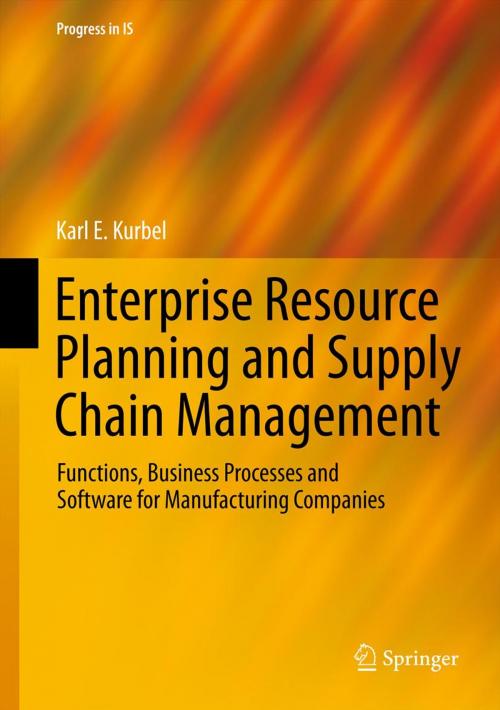Enterprise Resource Planning and Supply Chain Management
Functions, Business Processes and Software for Manufacturing Companies
Business & Finance, Management & Leadership, Production & Operations Management, Industries & Professions, Information Management| Author: | Karl E. Kurbel | ISBN: | 9783642315732 |
| Publisher: | Springer Berlin Heidelberg | Publication: | August 23, 2013 |
| Imprint: | Springer | Language: | English |
| Author: | Karl E. Kurbel |
| ISBN: | 9783642315732 |
| Publisher: | Springer Berlin Heidelberg |
| Publication: | August 23, 2013 |
| Imprint: | Springer |
| Language: | English |
This book is about running modern industrial enterprises with the help of information systems.
Enterprise resource planning (ERP) is the core of business information processing. An ERP system is the backbone of most companies' information systems landscape. All major business processes are handled with the help of this system.
Supply chain management (SCM) looks beyond the individual company, taking into account that enterprises are increasingly concentrating on their core competencies, leaving other activities to suppliers. With the growing dependency on the partners, effective supply chains have become as important for a company's success as efficient in-house processes.
This book covers typical business processes and shows how these processes are implemented. Examples are presented using the leading systems on the market – SAP ERP and SAP SCM. In this way, the reader can understand how business processes are actually carried out "in the real world".
This book is about running modern industrial enterprises with the help of information systems.
Enterprise resource planning (ERP) is the core of business information processing. An ERP system is the backbone of most companies' information systems landscape. All major business processes are handled with the help of this system.
Supply chain management (SCM) looks beyond the individual company, taking into account that enterprises are increasingly concentrating on their core competencies, leaving other activities to suppliers. With the growing dependency on the partners, effective supply chains have become as important for a company's success as efficient in-house processes.
This book covers typical business processes and shows how these processes are implemented. Examples are presented using the leading systems on the market – SAP ERP and SAP SCM. In this way, the reader can understand how business processes are actually carried out "in the real world".















